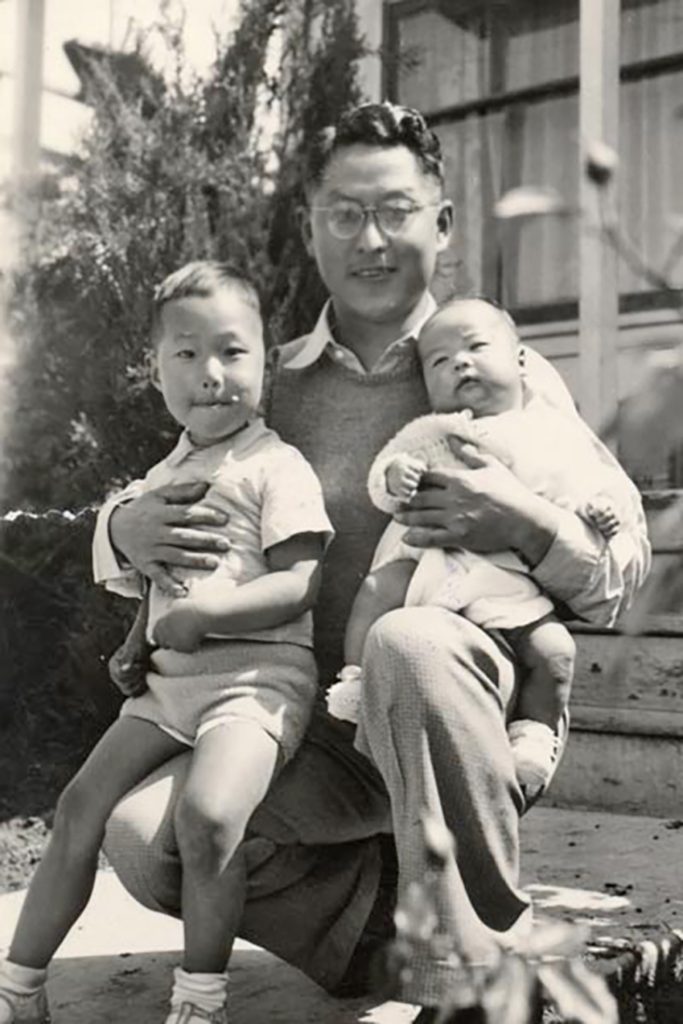
Tom
Wagenlander
Wish of a Lifetime from AARP grants life-changing wishes to older adults. With May being both AAPI Heritage Month and Military Appreciation Month, our organization is taking the opportunity to reflect on the immense contributions of AAPI military members throughout our country’s history.
Every day, we come across older adult trailblazers who have sacrificed so much for future generations yet whose sense of purpose, passion and legacy has suffered as a result of the way our society views aging.
After granting nearly 3,000 wishes, it is an understatement to say that making their dreams come true is a privilege. By granting their wishes, we help spark the hope and joy everyone deserves as they age. In doing so, we get to appreciate their journeys’ diversity and contributions to our society.
For AAPI veterans, particularly of older generations, it is a contribution that is underestimated yet filled with examples of heroism in the face of great prejudice. My own grandfather, a proud member of the AAPI community, answered his adopted nation’s call to service during World War II, seeing combat in Europe. His service filled him with immense pride despite the many cruel injustices he faced.

Brothers Nori and Toki Endo with their father, Kikuo (Photo: Courtesy of AARP)
The rich tradition of AAPI military service includes the famed Japanese American 442nd U.S. Army Regimental Combat Team, many of whose family members were incarcerated in the U.S. while they fought abroad. With 21 Medal of Honor recipients and more than 14,000 awards, the 442nd is still considered the most-decorated unit in U.S. military history.
At Wish of a Lifetime, we have had the privilege of getting to know individuals who make up the long-storied history of AAPI military service. We feel it is our duty to support these legacies through our services and storytelling.
This month, we are highlighting the story of Lt. Col. Toki Endo. As young boys, Toki and his brother, Nori, were interned during WWII. It is hard to imagine what it feels like to be unjustly imprisoned by your own country at the ages of 4 and 6.
Internment was an undeniable and profoundly impactful moment in their life stories, but it does not define their legacy. The two would go on to decorated Navy and Air Force service careers. Nori was an attack pilot in the Navy, and Toki was an electronic warfare officer in the Air Force. Cumulatively, they flew hundreds of missions, each earning Distinguished Flying Crosses, Air Medals and other accolades.
However, the obligations of military duty would see the bonds of their brotherhood gradually weaken. Their separation was not willful but a passive drift influenced by age, successful careers and the cost of health effects from exposure to the toxic herbicide Agent Orange.
When Nori passed away in 2013, Toki sat among friends and family, listening to previously unknown stories. A sense of disconnection settled upon him, and he wondered which of his own stories remained unknown to his brother’s family, a feeling that would only intensify with the passing years.
Later this summer, Toki’s wish of a lifetime will be granted when 10 family members representing four generations converge on California for a week of storytelling and connection — the perfect antidote to 87-year-old Toki’s feelings of disconnection.
The collective service of AAPI veterans represents but one contribution the AAPI community has made to our country. The Endo brother’s story illuminates what a critical contribution that is.
Toki and Nori exemplify that the AAPI story and the accompanying sacrifice, injustice and achievement are American stories.
At Wish of a Lifetime, these are the dreams we seek to fulfill and the stories we must tell. We invite you to assist in ensuring that these legacies persevere.
To learn more about Toki’s story and Wish of a Lifetime, visit wishofalifetime.org and https://wishofalifetime.org/campaigns/veterans/toki/.
Guest columnist Tom Wagenlander is vp and executive director of Wish of a Lifetime from AARP.



